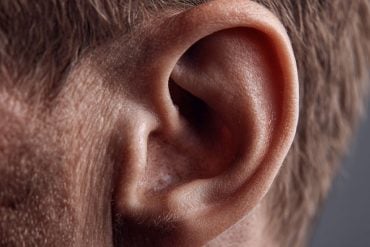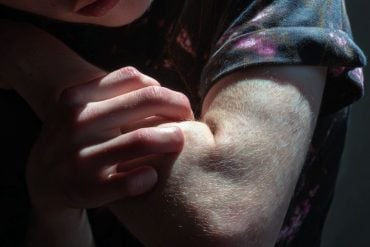Summary: According to researchers, our first impressions of people’s personalities may depend on their body shape.
Source: APS.
When we meet new people, our first impressions of their personality may depend, at least in part, on their body shape, according to research published in Psychological Science.
“Our research shows that people infer a wide range of personality traits just by looking at the physical features of a particular body,” says psychological scientist Ying Hu of the University of Texas at Dallas, first author on the research. “Stereotypes based on body shape can contribute to how we judge and interact with new acquaintances and strangers. Understanding these biases is important for considering how we form first impressions.”
Previous research has shown that we infer a considerable amount of social information by looking at other people’s faces, but relatively little research has explored whether body shapes also contribute to these judgments.
“We wanted to know whether we could link personality descriptor words to body shape in predictable ways,” explains Hu. “That is, do people look at a person’s body and make snap judgments about whether the person is lazy, enthusiastic, or irritable?”
Hu and colleagues created 140 realistic body models, of which 70 were female and 70 male. The three-dimensional renderings were generated from random values along 10 different body dimensions, using data from laser scans of actual human bodies. Using these models allowed the researchers to know the precise physical measurements of each body shown in the study.
A total of 76 undergraduate participants viewed a set of models — they saw each body from two angles and indicated whether 30 trait words shown on screen applied to that body. The trait words reflected dimensions of the Big Five personality traits (a common measure of personality used in psychology research) typically seen as positive (e.g., enthusiastic, extraverted, dominant) or negative (e.g., quiet, reserved, shy).
The researchers analyzed whether participants consistently associated specific traits with certain types of bodies.
Generally, participants judged heavier bodies as being associated with more negative traits, such as being lazy and careless; they judged lighter bodies as having more positive traits, such as being self-confident and enthusiastic.
Furthermore, the participants perceived classically feminine (e.g., pear-shaped) and classically masculine (e.g., broad-shouldered) bodies as being associated with “active” traits, such as being quarrelsome, extraverted, and irritable. Male and female bodies that were more rectangular, on the other hand, were associated with relatively passive traits, such as being trustworthy, shy, dependable, and warm.
In additional analyses, the researchers found that they could reliably predict personality trait judgments from specific combinations of different body shape features.

“To our knowledge, this is the first study to consider the role of more nuanced aspects of body shape–beyond height and weight–in personality judgments about people,” says Alice O’Toole, coauthor and professor of the University of Texas at Dallas.
The tendency to infer personality traits from body shape is likely universal, the authors argue, but they note that the exact inferences people make will vary according to their culture, ethnicity, and even age. And it remains to be seen how other characteristics, such as attractiveness or gender, interact with body shape to influence the inferences that people make.
These findings add a new layer to the science behind first impressions, revealing “the complicated and value-based judgments that people make about strangers based only on their bodies,” Hu concludes.
Coauthors on the research include Connor J. Parde, Matthew, Q. Hill, and Alice J. O’Toole of the University of Texas at Dallas and Naureen Mahmood of the Max Planck Institute for Intelligent Systems.
Source: Anna Mikulak – APS
Publisher: Organized by NeuroscienceNews.com.
Image Source: NeuroscienceNews.com image is in the public domain.
Original Research: Abstract for “First Impressions of Personality Traits From Body Shapes” by Ying Hu, Connor J. Parde, Matthew Q. Hill, Naureen Mahmood, and Alice J. O’Toole in Psychological Science. Published October 22 2018.
doi:10.1177/0956797618799300
[cbtabs][cbtab title=”MLA”]APS”People Link Body Shapes with Personality Types.” NeuroscienceNews. NeuroscienceNews, 1 November 2018.
<https://neurosciencenews.com/personality-type-body-shape-10131/>.[/cbtab][cbtab title=”APA”]APS(2018, November 1). People Link Body Shapes with Personality Types. NeuroscienceNews. Retrieved November 1, 2018 from https://neurosciencenews.com/personality-type-body-shape-10131/[/cbtab][cbtab title=”Chicago”]APS”People Link Body Shapes with Personality Types.” https://neurosciencenews.com/personality-type-body-shape-10131/ (accessed November 1, 2018).[/cbtab][/cbtabs]
Abstract
First Impressions of Personality Traits From Body Shapes
People infer the personalities of others from their facial appearance. Whether they do so from body shapes is less studied. We explored personality inferences made from body shapes. Participants rated personality traits for male and female bodies generated with a three-dimensional body model. Multivariate spaces created from these ratings indicated that people evaluate bodies on valence and agency in ways that directly contrast positive and negative traits from the Big Five domains. Body-trait stereotypes based on the trait ratings revealed a myriad of diverse body shapes that typify individual traits. Personality-trait profiles were predicted reliably from a subset of the body-shape features used to specify the three-dimensional bodies. Body features related to extraversion and conscientiousness were predicted with the highest consensus, followed by openness traits. This study provides the first comprehensive look at the range, diversity, and reliability of personality inferences that people make from body shapes.






